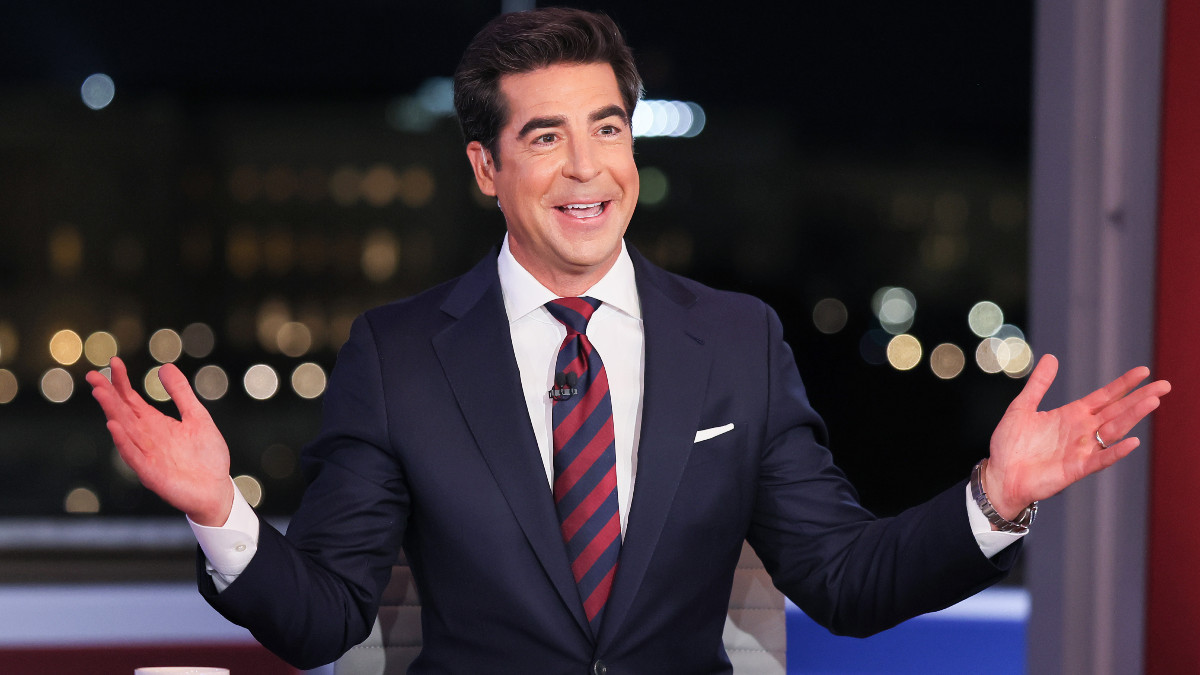Jasmine Crockett, a rising star within the Democratic Party, continues to dominate headlines and live “rent-free” in the minds of conservative commentators, particularly within the MAGA movement. Recently, Crockett delivered an impactful and unapologetic critique of the Republican stance on immigration, sparking an explosive reaction from Fox News host Jesse Watters.
During a candid interview on CBS, Crockett directly challenged the misconceptions surrounding immigration. She highlighted the disconnect between public opinion and reality, especially regarding economic impacts. Crockett argued that immigration is essential for economic stability, specifically addressing sectors like agriculture, construction, and hospitality that are currently facing severe worker shortages.
“Polling is a stagnant data point,” Crockett emphasized. Instead, she called for more comprehensive discussions through focus groups to truly understand public sentiment. “If you ask people if they’re okay with rising grocery and housing prices, and then link these issues to the need for immigrant labor, opinions will shift,” Crockett said, stressing the urgent need to reframe the conversation around immigration.
This bold stance resonated strongly, especially as she drew explicit connections between restrictive immigration policies and the struggles faced by everyday Americans. Crockett cited recent conversations with business leaders, particularly in construction, who expressed frustration over the lack of available workers due to restrictive immigration policies.
The Congresswoman’s remarks extended beyond economic arguments, tackling the Trump administration’s ongoing efforts to eliminate diversity, equity, and inclusion (DEI) programs. Crockett asserted that these policies effectively undermine the Civil Rights Act, a cornerstone of American social progress. She described these maneuvers as a “workaround,” designed to roll back decades of civil rights advancements.
“This is terrifying for many Black Americans,” Crockett said, referencing historical figures like John Lewis, whose lifelong advocacy paved the way for modern equality measures. “The goal of DEI has always been to expand upon civil rights protections, not diminish them.”
Illustrating the economic and social benefits of diversity, Crockett pointed to major corporations like Target and Costco. After Target reduced its commitment to DEI initiatives, she explained, many consumers shifted their loyalty to companies like Costco, which actively embraced these values and subsequently experienced record growth.

“Diversity isn’t just a moral imperative,” Crockett declared. “It’s economically beneficial. Corporations that ignore DEI principles risk alienating diverse consumer bases and suffering financially.”
Predictably, Crockett’s bold statements triggered a swift backlash from conservative media. Jesse Watters, host of Fox News’ “Jesse Watters Primetime,” sharply criticized Crockett’s remarks. Watters, known for provocative and often controversial commentary, accused Crockett of “attention-seeking” and labeled her arguments as “racist,” a critique that many observers found ironic given Watters’ history of inflammatory statements.
Watters specifically took issue with Crockett’s comment about Americans being unwilling to perform agricultural labor, misinterpreting it as racial provocation. However, Crockett’s original point clearly addressed the economic reality and labor shortages in agriculture, emphasizing the importance of immigrant labor to sustain the industry.
“None of y’all are trying to farm right now,” Crockett bluntly stated during the interview, underscoring that modern Americans have largely moved away from physically intensive agricultural work. This statement, taken out of context by Watters, was meant to highlight labor market realities rather than stir racial tensions.

In reaction to Watters’ accusations, Crockett’s supporters swiftly defended her, highlighting her consistency, authenticity, and ability to directly address tough issues. Crockett herself has maintained an unapologetic stance, emphasizing her commitment to truthful dialogue and practical solutions rather than political theatrics.
The backlash against Watters was swift and widespread, especially given the irony of him accusing Crockett of racism. Observers noted that Watters, a commentator known for divisive and often exaggerated rhetoric, appeared deeply unsettled by Crockett’s frank assessment and straightforward logic.
Political analysts point to this ongoing dynamic between Crockett and conservative media as indicative of broader tensions within American politics. Crockett’s effectiveness lies in her direct, no-nonsense communication style, which consistently resonates with the public and irritates her political opponents. Her ability to clearly connect policy decisions to their real-world implications positions her as a significant voice within the Democratic Party.

Ultimately, Crockett’s vocal advocacy for inclusive and economically sensible immigration policies, alongside a staunch defense of diversity initiatives, continues to place her at the forefront of contentious political debates. Her exchanges with conservative figures like Watters not only illustrate her resilience but also highlight the broader cultural and ideological divides shaping contemporary American politics.
As Jasmine Crockett continues to advocate boldly for policies grounded in economic realities and social equity, conservative backlash only amplifies her message. Her ongoing influence underscores the evolving landscape of American political discourse, where authenticity and candid communication increasingly shape voter perception and policy debates.

